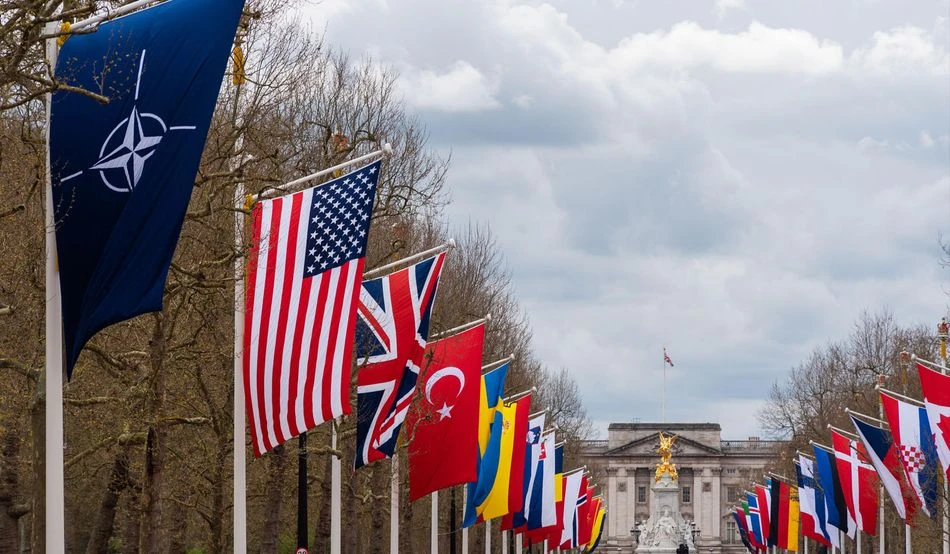NATO’S 75 Anniversary: Pains and Gains

Stay tuned with 24 News HD Android App

The NATO summit in Washington, DC, marking the alliance’s 75th anniversary, serves as a critical juncture to reassess the contributions of NATO members to global peace and security. With the Russian invasion of Ukraine and the increasing assertiveness of global powers and actors in the Asia-Pacific, the summit underscores the challenges that require a united front. However, beyond the public relations gloss of solidarity and mutual defence, it’s crucial to examine the underlying realities of how NATO members, particularly the so-called "native" or long-standing members, are navigating their roles in maintaining global and regional stability.
The United States, NATO's financial heavyweight, has long pushed for increased military spending from other member countries. The 2014 commitment for each country to spend at least 2 percent of their GDP on defence has seen some progress, but notable exceptions like Canada, Spain, Italy, and Portugal lag behind. This disparity raises questions about the genuine commitment of these nations to collective security. If even economically prosperous countries fail to meet their obligations, it undercuts the credibility of NATO’s collective defence principle.
The role of these native members is further complicated by internal political dynamics. For instance, President Joe Biden’s administration, despite its rhetoric of unwavering support for Ukraine, is under immense domestic pressure. The potential return of Donald Trump to the White House poses a significant threat to NATO’s cohesion, given his previous criticisms and threats to withdraw the US from the alliance. The prospect of a Trump presidency could lead to a drastic downgrading of the US role in NATO, fundamentally weakening the alliance.
Similarly, European politics is rife with complications. French President Emmanuel Macron faces a leftist bloc in the National Assembly that may limit his ability to fully support NATO initiatives. The newly elected British Prime Minister Keir Starmer, though fresh off a landslide victory, will need to navigate complex international waters. These internal political issues in major NATO countries reflect a disunity that is hard to mask, even as the alliance projects an image of strength.
Turkey and Hungary's roles within NATO further illustrate these fractures. Their delay in approving Finland’s and Sweden’s bids for membership and their continued friendly ties with Russia highlight a troubling inconsistency within the alliance. Hungarian Prime Minister Viktor Orban's recent meetings with Russian President Vladimir Putin and Chinese President Xi Jinping, under the guise of peace missions, have been met with scepticism and criticism. Such actions not only undermine NATO’s stance but also embolden adversaries like Russia and China.
China’s growing influence and its deepening ties with Russia are significant concerns. The Asia-Pacific partners—Australia, Japan, and South Korea—look to NATO for reassurance against an aggressive China, which claims nearly all of the South China Sea. NATO’s reliance on this trade route and the need to protect Taiwan, a critical ally, underscores the importance of a unified stance. However, the alliance’s response to China has been tepid at best, reflecting a lack of cohesive strategy among its members.
The ongoing support for Ukraine remains the most pressing issue. Despite substantial financial and military aid, NATO's hesitance to fully integrate Ukraine into the alliance reveals a cautious approach aimed at avoiding further escalation with Russia. While this may be a pragmatic stance, it highlights the limitations of NATO’s commitment to defending its principles against authoritarian aggression.
In conclusion, the NATO summit exposes the illusion of native members’ roles in maintaining global peace and prosperity. The internal political challenges, varying levels of defence commitments, and inconsistent foreign policies among member states reveal a fragmented alliance struggling to present a united front. As global and regional threats intensify, it is imperative for NATO members to address these internal disunities and reaffirm their commitments to collective defence and international stability. Only through genuine unity and adherence to shared principles can NATO hope to navigate the complex geopolitical landscape and ensure long-term peace and security.
